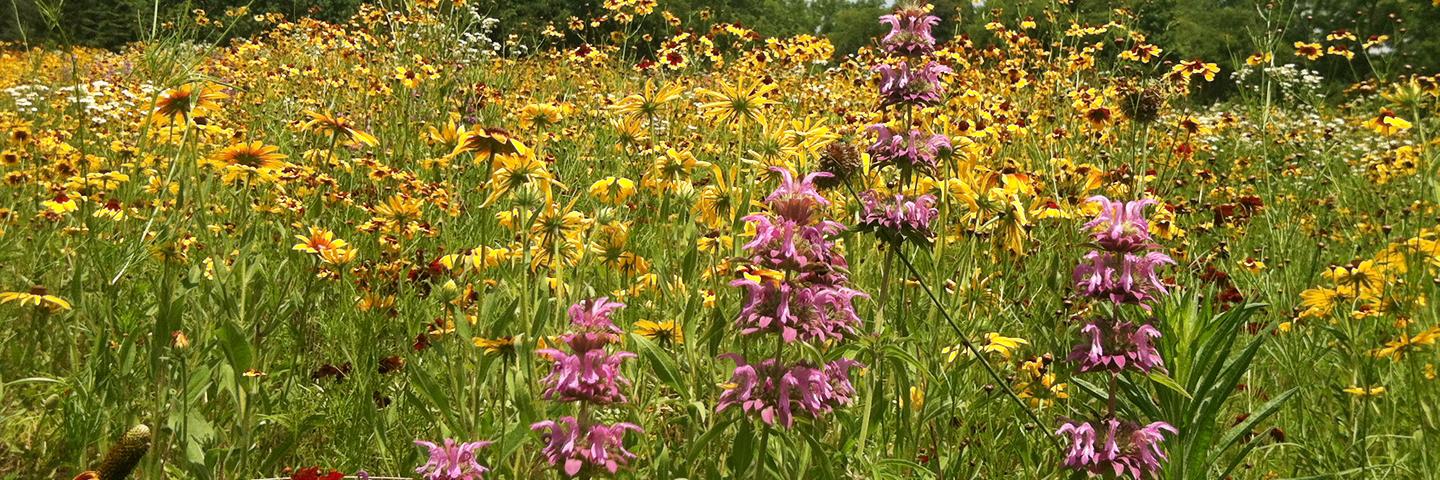NRCS Broadens Focus for 2022 Conservation Innovation Grants

Virginia NRCS is seeking proposals for new partnership projects focused on improving soil health on grazing lands and creating more diverse pollinator habitat with native species.
Richmond, Va. – Two-for-one isn’t just a great sales strategy. It’s also the underlying concept behind Conservation Innovation Grants (CIGs), which leverage partner resources to double investments in field testing, evaluation and implementation of new conservation technologies, practices and systems.
USDA's Natural Resources Conservation Service (NRCS) is now using the same tactic to address two resource concerns in one funding announcement. This year, the Virginia team is seeking submissions that involve research, demonstrations, outreach and educational initiatives or technical/financial assistance strategies leading to improved soil health and/or pollinator habitat restoration.
“The dual focus for this year’s state-level CIGs will help us engage more partners and landowners in finding solutions to the commonwealth’s natural resource problems,” says Dr. Edwin Martinez Martinez, NRCS state conservationist. “We’re building on the forward momentum of more than 10 years of soil health studies with a shift from cropland to grazing operations and bringing pollinators into the mix with incentives to incorporate more native species.”
Grants will be awarded for projects between one and three years duration with maximum awards of $200,000 for each priority topic. The soils emphasis will be on establishing improved forbs in perennial grassland systems for greater stand diversity, forage quality and soil health. Proposals should reflect a clear understanding of, and alignment with, state soil health issues outlined in the Virginia NRCS Soil Health Strategic Plan.
Diversity will be a key criterion for pollinator proposals leading to greater implementation of these practices. Diverse habitat contains at least two native grass species (less than three feet tall) and at least nine native wildflower species. Three wildflower species must bloom early in the growing season, three in the middle of the growing season and three late in the growing season. Preferred projects will focus on one or more of these activities:
- Collection of Virginia native plant ecotype seeds from natural stands and production of seed from those collections on privately-owned farms.
- Restoration of diverse pollinator habitat by converting fields of non-native plants.
- Restoration of diverse pollinator habitat by converting fields to low diversity native plants.
The 2022 Virginia CIG Notice of Funding Opportunity (NFO) can be found here on www.grants.gov and on the Virginia CIG web page. State and local units of government, non-governmental organizations, tribal organizations and individuals interested in applying for these competitive grants must submit proposals by 11:59 p.m., Eastern Time on May 16, 2022. NRCS anticipates making selections by June 10, 2022, and expects to execute awards by June 30, 2022.
Application packages must be submitted electronically on www.grants.gov/. All activities must involve landowners who meet eligibility requirements for the Environmental Quality Incentives Program (EQIP). More information on EQIP is available on the Virginia NRCS website.
Please reach out to J.B. Daniel at j.b.daniel@usda.gov or (434) 392-4171, ext. 115, about the grassland portion or the state’s strategic plan. Pollinator habitat technical contact Jeff Jones may be reached at jeffray.jones@usda.gov or (804) 287-1636.

